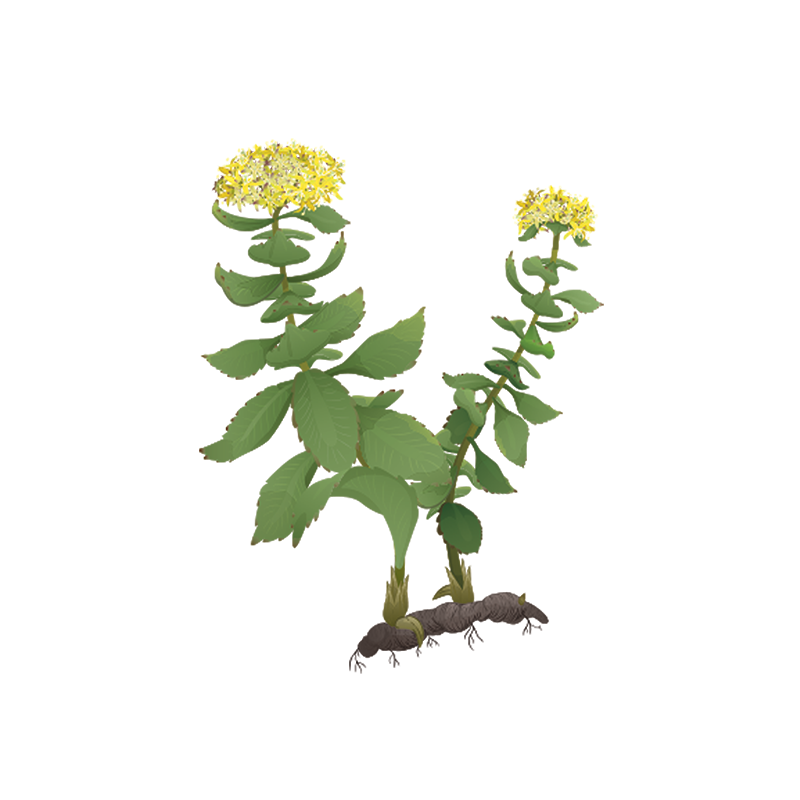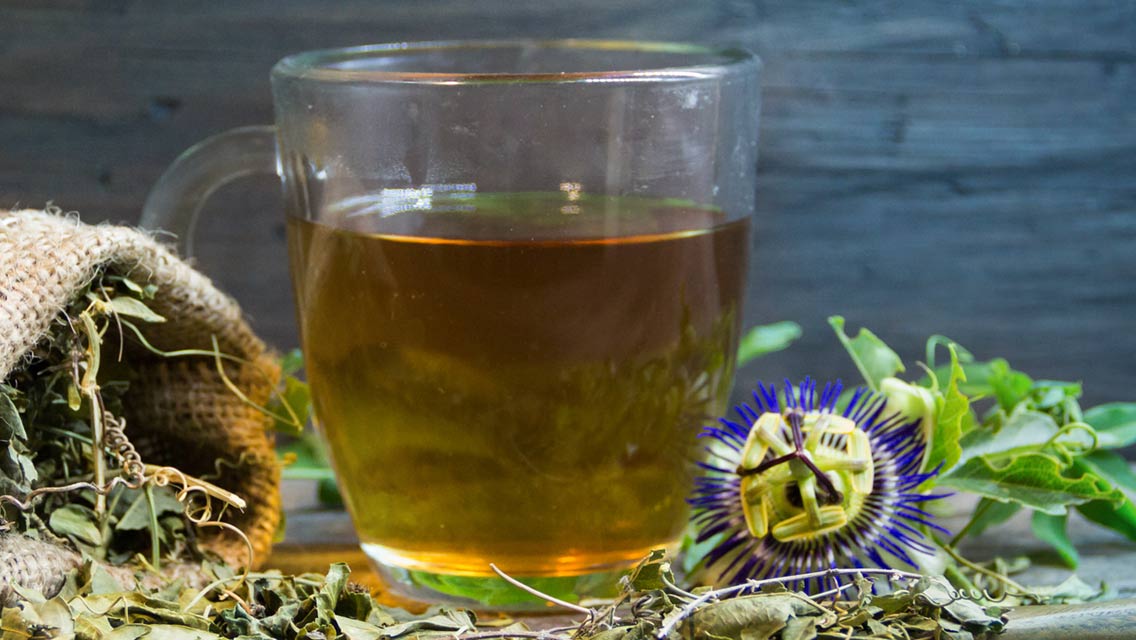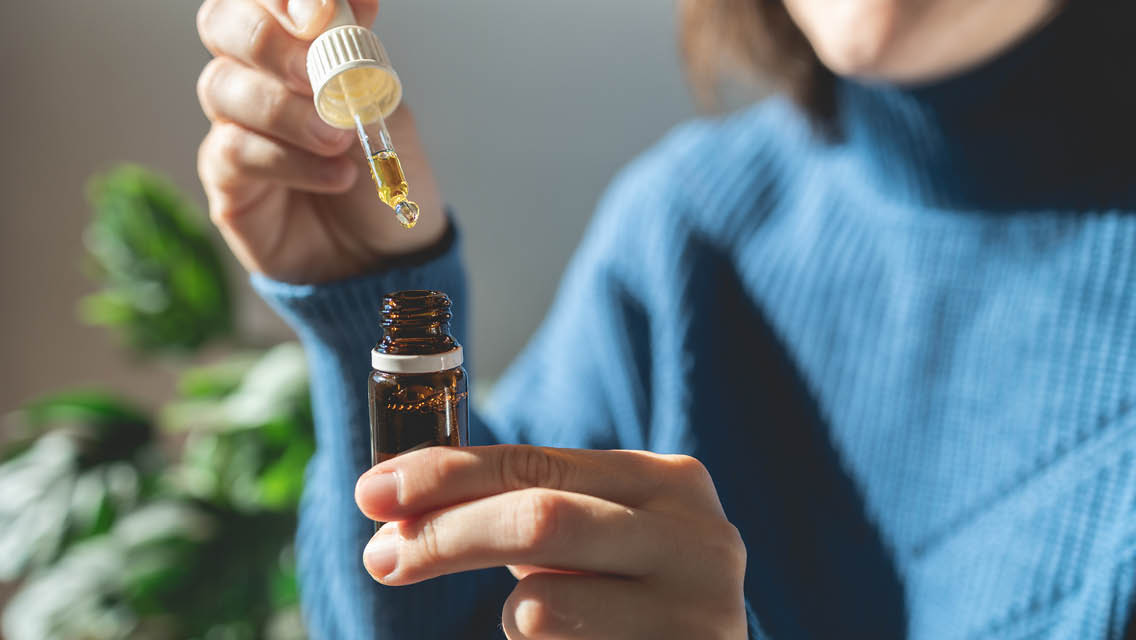Stress is inevitable, and we are built to adapt and grow from it — so long as it isn’t too intense or persistent. Still, nearly all of us will experience stress that’s overwhelming enough to tank our normal resilience at some point. This is when anxiety, depression, and fatigue are likely to take hold and we need some extra help.
Several herbs known as adaptogens can provide gentle, safe support during periods of chronic stress. They bolster hormonal balance, immune function, and nervous-system regulation. When I want to help a chronically stressed patient find traction, I rely on these three herbs.

Rhodiola:
The Energizer
Rhodiola supports the nervous system. Not only does it help downregulate stress hormones, but it also gives a modest energy boost without too much stimulation.
Traditionally, rhodiola has been used to improve energy and focus. Recent studies have shown that it may contribute to the following effects:
- Reduced generalized anxiety
- Improved serotonin and dopamine levels
- Better-regulated cortisol levels
I often recommend rhodiola during the winter months to patients with a tendency toward seasonal depression.
How to use:
A typical dose ranges from 200 to 250 milligrams twice daily. Look for a standardized extract containing at least 3 percent rosavin. It may be taken with meals, ideally with breakfast and lunch. Avoid bedtime usage because of the adaptogen’s mild stimulating effects.
Potential downsides:
Rhodiola is energizing. If you notice anxiety or sleeplessness, consider a smaller dose and take it early in the day. Rhodiola is considered safe for long-term use and has no known interactions with other medications.

Ashwagandha:
The Soother
Ashwagandha ranks as one of the most valued remedies in Ayurvedic medicine. It’s one of my favorite herbs and among the few that I use in my daily regimen. Here’s what it does:
- Supports the body under stress
- Reduces anxiety
- Helps with sleep
It also appears to improve focus and alertness while simultaneously calming anxiety.
How to use:
The usual dosage is 250 mg twice daily (standardized to 1.5 percent withanolide — a naturally occurring chemical compound). If it makes you sleepy, or you’re using it primarily to support sleep, take the full 500 mg in the evening. (Try it with this evening latte.)
Potential downsides:
Ashwagandha, also known as winter cherry, is part of the nightshade family. Anyone sensitive to nightshades (tomatoes, peppers, potatoes, eggplant) could potentially react to this herb as well.
Beyond that, it is well tolerated. Watch for signs of fatigue if you’re taking prescription sedatives.
It’s wise to avoid ashwagandha if you take immunosuppressant drugs, because it may enhance the immune-system response.

Holy Basil:
The Uplifter
Sometimes called tulsi, holy basil is a prized tonic for multiple health concerns, including eczema, bronchitis, and gut issues. Ayurvedic practitioners sometimes call it “liquid yoga.” This adaptogen can be an excellent antidote for a down mood. It works in these ways:
- Reduces inflammation and strengthens the immune system
- Improves lipid metabolism, stabilizes blood sugar, and reduces insulin resistance
- Boosts mental health by easing anxiety, improving stress tolerance, and enhancing mood
Holy basil can help manage stress by slowing the release of cortisol and blocking its receptors. This helps limit the potential damage from excess cortisol.
How to use:
The typical dose is about 300 mg taken two or three times daily. Look for a standardized freeze-dried or liquid extract, or enjoy it as a tea.
Potential downsides:
Holy basil is considered safe, even for long-term use. It’s not known to interact with other medications.
Natural Mental Health
For more nonpharmaceutical solutions for common mental health challenges, visit our Natural Mental Health Department.
This article originally appeared as “Adaptogens for Resilience” in the July/August 2025 issue of Experience Life.





This Post Has One Comment
I have heard multiple times ashwagandha should not be taken if you take meds for hypothyroidism. Is this true?